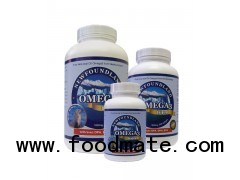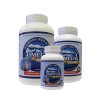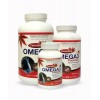|
David Health Newfoundland Omega3 products are made of pure harp seal oil from Newfoundland, Canada. Available in 3 sizes: Directions (Adult):
|
|
Role of omega3 |
|
- DPA (docosapentaenoic acid) is naturally present in human milk. It is postulates to be and essential fatty acid for infant nutrition and development. Seal oil is one of the few know natural sources of DPA. In contrast, fish oils have little or no DPA. Recent studies show that DPA is involved with the healing process associated with cardiovascular disease, namely atherosclerosis and thrombosis. - DHA (docosahexaenoic acid) has been identified as an essential fatty acid in brain, nerve and eye tissue. It is especially - EPA (eicosapentaenoic acid) reduces inflammation and blood clots within the cardiovascular system. Clinical tests have shown people with diets rich in EPA are less prone to inflamed joints (Rheumatoid arthritis), inflammation of the intestine (Chron's disease), lupus, asthma, multiple sclerosis and skin disease. Benefits of seal oil As early as 1908 the Danish doctors Krogh and Krogh studied the "Greenland" diet. They demonstrated that Greenlanders were the most meat-eating population known that time. The Danish doctors Bang and Dyerberg confirmed this in the studies they made between 1970 and 1979. |
|
David health international omega3 |
|
We have produced Canada's finest pure harp seal caps since 2002. |









